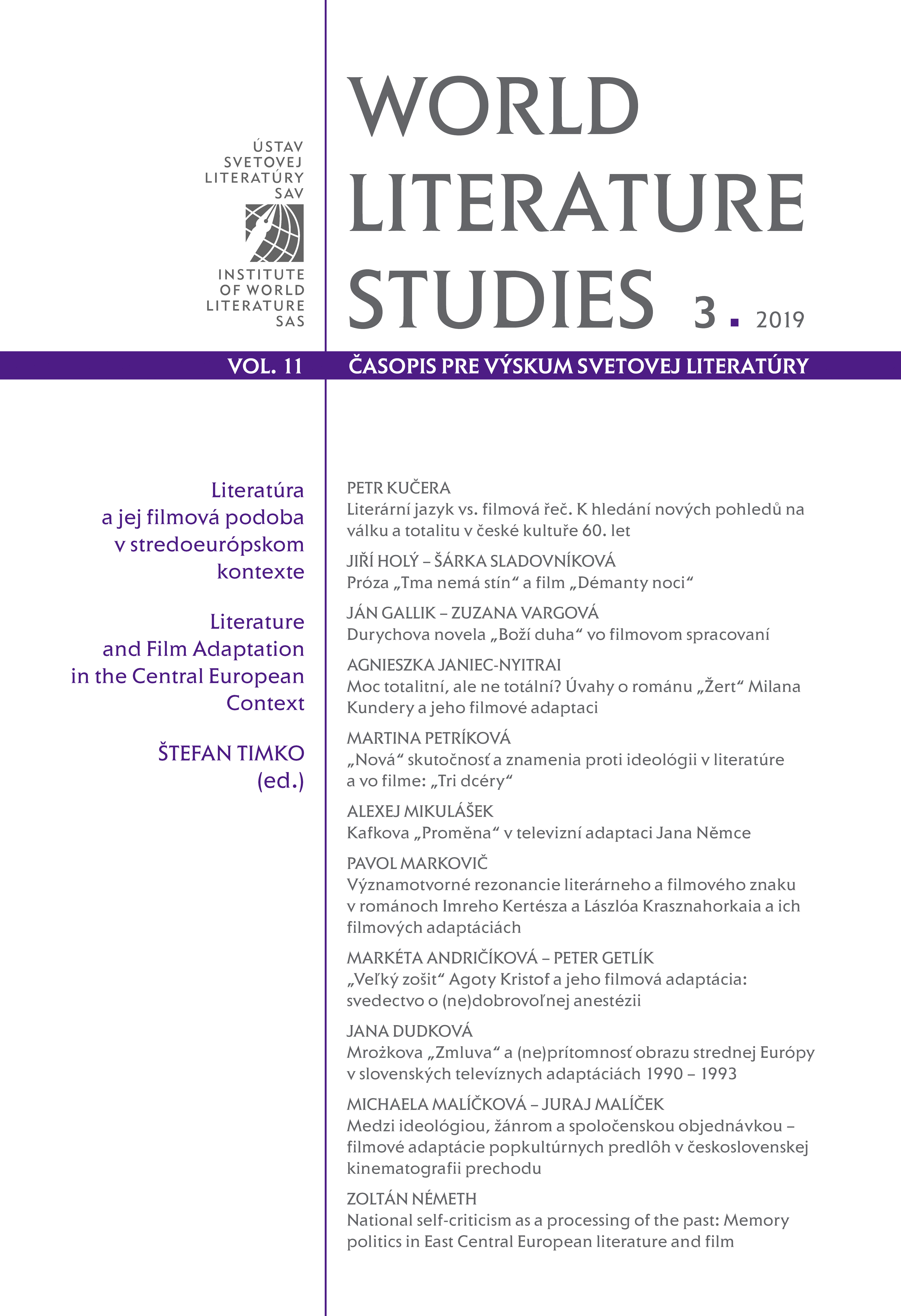Medzi ideológiou, žánrom a spoločenskou objednávkou – filmové adaptácie popkultúrnych predlôh v československej kinematografii prechodu
At the intersection of ideology, genre and popular demand: film adaptations of pop culture sources in the Czechoslovak cinematography of transition
Author(s): Juraj Malíček, Michaela MalíčkováSubject(s): Language and Literature Studies, Studies of Literature, Czech Literature, Slovak Literature, Film / Cinema / Cinematography
Published by: SAV - Slovenská akadémia vied - Ústav svetovej literatúry
Keywords: "Czechoslovak cinematography of transition"; "Genres of popular culture"; "Sci-fi"; "Trivial literature"; "Adaptation";
Summary/Abstract: The text attempts to identify specific methods used in film adaptations of literary works bySlovak and Czech authors that represent genres of popular culture in the so-called cinematographyof transition, defined by historical milestones which reflect various social, culturaland political changes. The normalization process in Czechoslovakia “softened” after 1985 andCzechoslovak cinematography became more open and free, although it still remained controlledby censorship which was not institutionally based. The sci-fi films for children andyoung adults, such as The Third Dragon (1985), directed by Peter Hledík, and the televisionfilm Gemini (1991), directed by Pavol Gejdoš, Jr., are pars pro toto examples of films whichwere not heavily loaded with ideology. The blood-spattered comedy The Flames of Royal Love(1990), directed by Jan Němec, typifies the period of social change after the fall of the IronCurtain in 1989 and the bizarre film Horror Story (1993), directed by Jaroslav Brabec, indicatesthe end of the cinematography of transition.
Journal: World Literature Studies
- Issue Year: 11/2019
- Issue No: 3
- Page Range: 117-130
- Page Count: 14
- Language: Slovak

